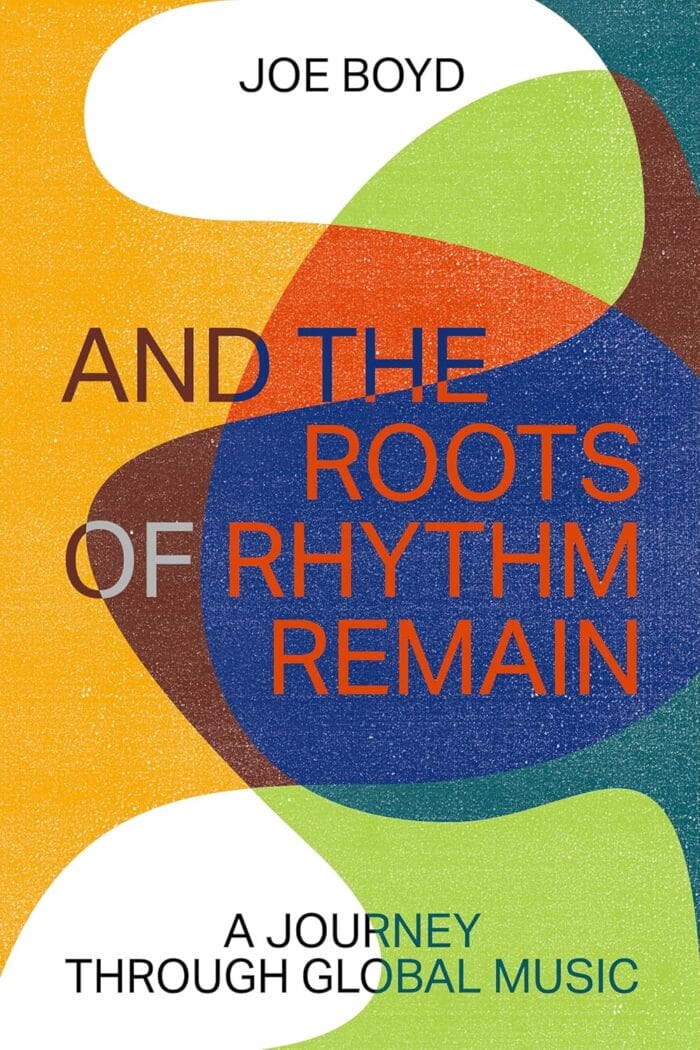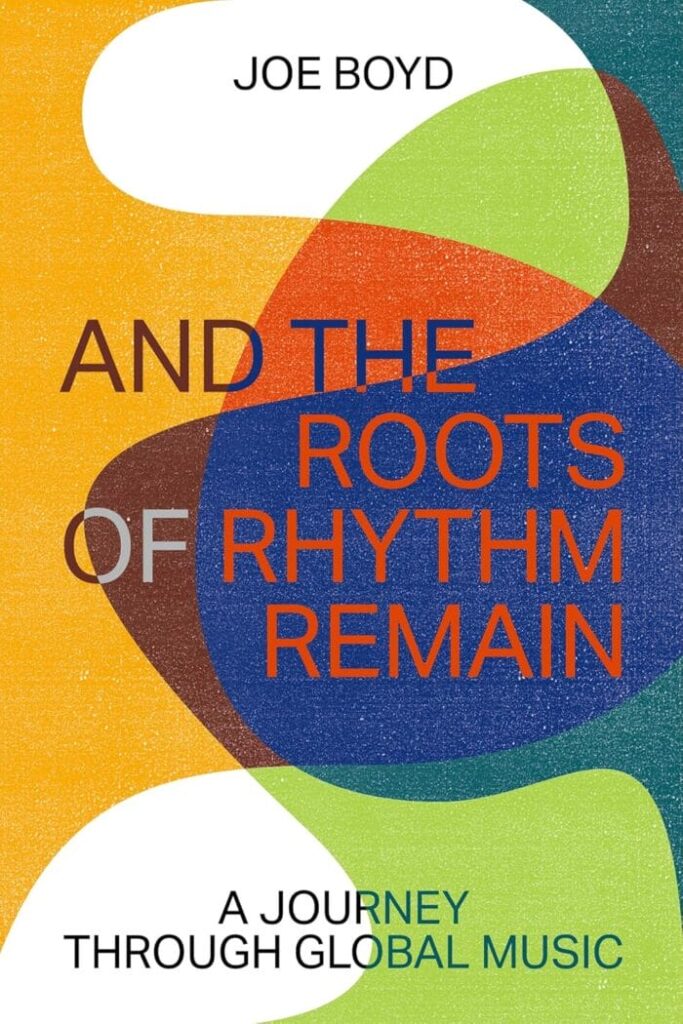On Wednesday, Sept. 11, Joe Boyd and David Byrne convened at New York’s Villa Albertine to pore over music’s intricate histories. Occasioned by And the Roots of Rhythm Remain, Boyd’s forthcoming book on the world’s diverse sonic landscape, the two legends divulged their unparalleled experience as cultural creators and champions, trading stories and asking questions in an exploration of sound and its significance.
After an introduction that praised Boyd’s timeless production for Pink Floyd, Nick Drake, Fairport Convention, Vashti Bunyan, Taj Mahal and more, a clip of Clara Nunes’ “A Deusa Dos Orixás” (drawn from Byrne’s 1989 compilation Brazil Classics 2: O Samba) rang out in the hall to set the mood with an Afro-Brazilian beat. Boyd spoke first, hailing Byrne as “one of the great figures of contemporary music and what we’re talking about here: keeping open ears to new sounds.” Testifying to the musician’s adventurous taste, Boyd encouraged his counterpart to recall his first trip to Brazil’s “pop utopia.”
“I’d brought this boombox, so I could listen to the local radio, and I’d hear things that I’d never heard,” the Talking Heads frontman recalled of Bahia in the ‘80s. “If I heard something I liked, I’d press record, and play it for people, asking, ‘What is this?’” For all he encountered in his trip, Byrne lamented that most of what he heard from the local stations was Madonna and Tracy Chapman. Samba had been “dominated by the American multinationals,” but the artist ceded that this story was too long for the evening’s program.
It’s just this story, of cultural crossings and their consequence, that Boyd pursues in his book. On his early inspiration, he shared, “I set out to discover why our music sounds different from Afro-Cuban music.” In his research and wealth of first-hand experience, the author traced centuries of cultural transmission around the distinctive Caribbean sound, from the upheavals of empire and slavery, through the port of New Orleans, to a clash in “Professor Longhair’s left hand.” That subversive style would quickly shake up American popular music in the ‘50s and ‘60s, taking new form in the saxophones of early rock and roll and the shuffling rhythm of The Beatles’ “Twist and Shout.”
Boyd and Byrne relayed several further compelling accounts of groundbreaking musicians and their influences. After explaining the “perfect ratios” that bound centuries of musical notation, the author arrives at John Coltrane, who came to realize that Western tempered music was not absolute when he heard Thelonious Monk striking adjacent keys to find “the note in between.” Coltrane’s innovations would go on to reach The Byrds, who had “India” on the very first cassette player in the United States, with Ravi Shankar on the flip side. After months of nonstop listening to these revelations on the road, they channeled the new sounds into “Eight Miles High.”
These stories prompted provocative questions from the speakers, who wondered: Does collective isolation reinforce identity? Is there something in music’s ability to transform us, and make us vulnerable, that stirs resentment towards its source? Is the relocation of African musical conventions into Afro-Cuban music appropriation? On this knotty, “weird” final topic, Boyd offered: “When anyone tries to replicate the art of another, they always fail, but they usually fail in a beautiful way.”
Boyd’s second book (after his 2006 memoir White Bicycles) takes its name from Paul Simon’s Graceland standout “Under African Skies.” In detailed accounts of Django Reinhardt and Roma identity, the disappearance and reemergence of drums in the West, the revolutionary invention of the electronic microphone and more, the author shares one of the most thorough and passionate accounts of music’s transformations across space and time yet.
Published by ZE Books (the print counterpart of Michael Zilkha’s foundational no wave label ZE Records), And the Roots of Rhythm Remain will be released on September 24. For more information on the book and Boyd, visit joeboyd.co.uk/.


